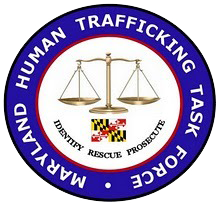Federal Law
Definition:
Human trafficking, also known as trafficking in persons, is a crime that involves compelling or coercing a person to provide labor or services, or to engage in commercial sex acts. The coercion can be subtle or overt, physical or psychological. Exploitation of a minor for commercial sex is human trafficking, regardless of whether any form of force, fraud, or coercion was used.
Other Relevant Laws:The PROTECT Act: Enacted in 2003, this Act combats the sexual exploitation of children, requiring courts to impose mandatory sentences for sex offenders and makes it a crime to travel abroad to engage in sexual conduct with minors. The Act amends the criminal code to increase supervision of convicted sex offenders for specific felonies. Additionally, the Act creates minimum standards and grants for states to expand their Amber Alert system for missing children. Convention Against Transnational Organized Crime (a.k.a. The Palermo Convention): UN-sponsored multilateral treaty adopted in 2000 contains the protocol to Prevent, Suppress and Punish Trafficking in Persons, especial Women and Children. The convention and the protocol fall under the jurisdiction of the United Nations Office on Drugs and Crime (UNODC). The Protocol to Prevent, Suppress and Punish Trafficking in Persons, Especially Women and Children (also referred to as the “Trafficking Protocol”): The Protocol was adopted by the UN in 2000 and is an international legal agreement attached to the UN Convention Against Transnational Organized Crime. The protocol sets out an agreed definition of trafficking in persons. The purpose of the Protocol is to facilitate convergence in national cooperation in investigating and prosecuting trafficking in persons and protect and assist the victims. The Mann Act: Enacted in 1910, this Act makes it a felony to knowingly transport any person in interstate or foreign commerce for prostitution, or for any sexual activity for which a person can be charged with a criminal offense. A person also violates the Act if he persuades, induces, entices, or coerces an individual to travel across state lines to engage in prostitution or other immoral purposes, or attempts to do so. |
Maryland Law
Definition:
To take, place, persuade, induce, entice, or encourage another to be taken to or placed in any place for prostitution;
To receive consideration to procure for or place in a house of prostitution or elsewhere another with the intent of causing the other to engage in prostitution or assignation;
To engage in a device, scheme, or continuing course of conduct intended to cause another to believe that if the other did not take part in a sexually explicit performance, the other or a third person would suffer physical restraint or serious physical harm; or
Destroy, conceal, remove, confiscate, or possess an action or purported passport, immigration document, or government identification document of another.
In 2015, Maryland passed House Bill 256, which established the formation of the Workgroup to Study Safe Harbor Policy for Youth Victims of Human Trafficking. The Workgroup studied and recommended legal protections and services Maryland should offer youth (under the age of 18) victims of human trafficking. On December 1, 2015, the Workgroup published a Final Report. To view the Final Report and for more information about the Workgroup CLICK HERE.
In 2014, Maryland passed two bills to combat human trafficking:
Senate Bill 454: Criminal Law - Child Kidnapping for the Purpose of Committing a Sexual Crime
Senate Bill 818: State Government - Human Trafficking Address Confidentiality Program
Also in 2014, stakeholders fought to pass four other pieces of legislation that did not pass.
